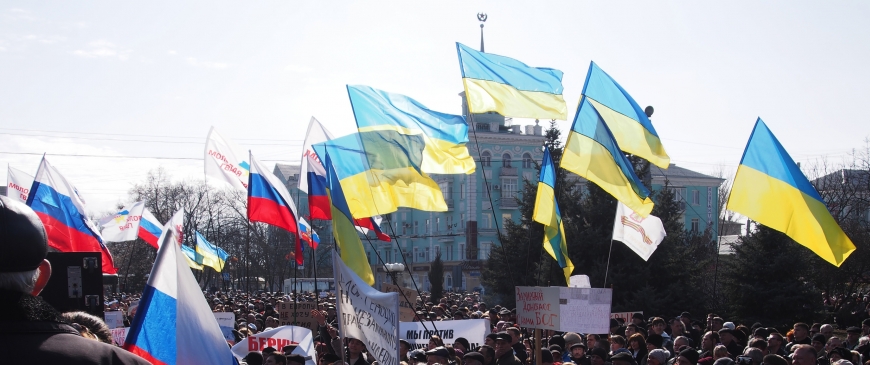
Minsk peace is an illusion
It is easy to see the short-term imperative of the deal agreed in Minsk on February 12th for Ukrainian President Petro Poroshenko: His troops have been on the retreat since New Year's, as Russia has inserted more forces and equipment into eastern Ukraine.
France, Germany and Britain have all come out against supplying lethal weapons to Ukraine. US President Barack Obama has said only that if diplomacy failed he would ask his team to look at the options, including supplying arms. For the time being at least, there seems little hope of the West saving Ukraine from further Russian military advances.
The Minsk agreement may give Poroshenko breathing space to focus on the economic and political reforms which Ukraine desperately needs. Also on February 12th, the International Monetary Fund announced that it had agreed a $17.5 billion loan for Ukraine, in addition to bilateral and multilateral loans of about $40 billion, as part of a reform package.
It is harder to understand why French President Francois Hollande and German Chancellor Angela Merkel have conceded so much to Russia, following its failure to implement the previous Minsk agreement from last September. With Russia's economy struggling, President Vladimir Putin has once again exploited the West's weaknesses and disguised his own vulnerability.
This may, in the short term, be a necessary agreement, but it is a bad one for Ukraine: The delay of two days before the cease-fire took effect gave Russian forces and their proxies time to take more territory.
Monitoring such a huge area will be almost impossible for the Organization for Security and Cooperation in Europe and its team of 250 unarmed monitors and one drone, unless the number of monitors is drastically increased. The chance of cease-fire violations or of heavy weapons systems turning up where they should not must be close to 100 percent.
Russian forces will keep control of the Ukrainian border in the separatist areas until the end of the year, and will only give it up when Ukraine has made constitutional changes guaranteeing the special status of the separatist areas.
Presumably Russia will want to make its own judgement on whether the constitutional changes go far enough. Would anyone be surprised if Putin decided that Ukraine had not done enough to deserve the restoration of control over its own territory and border?
It is also a bad deal for the rest of Europe. Hollande and Merkel are relying on Putin to implement this agreement in good faith. In return, the leaders of France and Germany are giving Putin increased influence in Ukraine's domestic affairs via his puppets in the east, and a say in Ukraine's economic relationship with the European Union.
They backed talks between the EU, Russia and Ukraine on the implementation of the EU-Ukraine Deep and Comprehensive Free Trade Agreement (DCFTA).
The DCFTA will force Ukraine to make painful reforms, but it also offers Ukraine the long-term prospect of a successful economy, integrated with the EU's single market.
Putin wants to block the reforms and keep Ukraine a corrupt, post-Soviet state dependent on Russia. If he succeeds, the lesson for other pro-European countries in the region will be clear: Even if you do the right things, we will not stand up to Russia for you.
The Minsk agreement cannot be rolled back, but the West can mitigate the damage. Western sanctions against Russia must not be relaxed until every point in the Minsk agreement has been implemented.
Crimea-related measures should stay as long as Russia occupies the peninsula. The EU should insist that the amnesty agreed between the parties for crimes committed in the conflict should not apply to those responsible for killing 298 people on the downed Malaysia Airlines Flight MH17.
Above all, the West should redouble its support to Ukraine — not only financial and technical, but also military. It is in Europe's interests that Ukraine should be the stable democracy that the Maidan protesters wanted it to be — and with a neighbor like Russia, that can never be guaranteed without robust defenses.
The EU should let go of its illusions. It has spent two decades trying to develop a rules-based relationship with Russia. It is time to accept that its efforts have failed. Now the West has to invest in protecting itself and those who aspire to join it.
Ian Bond is director of foreign policy at the Centre for European Reform.
